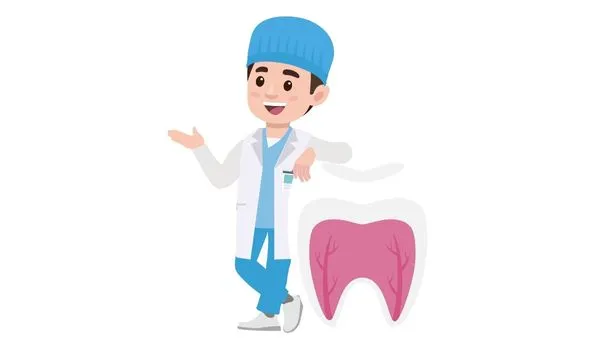Certificate or MS Degree Program in Periodontics
The best periodontics programs for dentists are designed to help dental professionals develop advanced skills in gum health, implantology, and oral surgery. Periodontics is a focused area of dentistry aimed at preventing, diagnosing, and treating gum disease and associated structures of the teeth.
Regardless of whether you select a certificate program or a Master of Science (MS) degree, both types of programs create pathways to a great career. But how do you determine which one is the right one for you? In this blog, we will help guide you through everything you need to know bout the programs, requirements, and your career options.
What is Periodontics?

Periodontics is the dental specialty responsible for gum health, bone support, and dental implants. Periodontists help patients with gum disease, perform corrective surgery, and focus on long-term oral health. The number of periodontal disease cases worldwide is increasing, and the need for qualified periodontists is likewise increasing.
Why Specialize in Periodontics?
Selecting a specialty in periodontics can be beneficial for a dental professional. While general practice dentists provide everyday dental care, periodontists are specialists in complicated gum and implant cases. This experience will:
- Expand your clinical skills.
- Increase your potential for earning.
- Lead to higher trust and referrals from your patients.
- Provide opportunities for academia and research.
If you’re wondering how to specialize in periodontics, it usually begins with choosing between a certificate program and an MS degree program.
Certificate vs MS in Periodontics
A frequently asked question by dentists is whether they should complete a certificate program or a full MS degree.
Certificate in Periodontics
- Length of Program: 1–2 years.
- Emphasis: Hands-on training and limited research.
- Best suited towards: Dentists who wish to develop clinical skills without a long-term commitment to a degree program.
Pros: Certificates can be completed quickly, in a less expensive manner, and allow immediate involvement in periodontics.
MS Degree in Periodontics
- Length of Degree: 2–3 year program.
- What You Will Study: A Combination of clinical education and extended academic research.
- Who It Is For: Dentists who would like to move into academic, research, or leadership roles.
- Value of the Program: Improved career prospects, stronger knowledge base, eligibility to teach.
Ultimately, when you think about the decision of which certificate or MS in periodontics is best for you, it comes down to your career aspirations. If your practice is your primary professional focus, the certificate may make sense for you. If you are considering an MS for specialization purposes or to move into leadership, the MS program offers multiple options.
Also Read: Best Dental Schools for Periodontics
What Are The Requirements Periodontics Degree Program?
Before enrolling, it’s important to understand the periodontics degree program requirements. While requirements vary by country and university, common criteria include:
- A Doctor of Dental Surgery (DDS) or Bachelor of Dental Surgery (BDS).
- Transcripts that show a good academic record.
- A letter of reference from professional practices is usually encouraged.
- Statement of purpose that articulates long-term career goals.
- Evidence of clinical skills.
- Entrance exams or interview processes may also be required, depending on the institution.
Some programs may also require applicants to express a research interest or provide a portfolio of clinical work to support their application.
Best Periodontics Programs for Dentists: What to Look For?
The best periodontics programs for dentists share certain features that make them stand out:
- Accreditation: Make sure that the program is accredited by the appropriate educational board for dentistry accreditation.
- Faculty: Look for faculty with experience in both academic roles as well as practicing periodontists.
- Real-world experience: A good mix of providing real-world patient care is a strong focus of educational programs.
- Research experience: This applies specifically to MS programs, but research experience is an important part of the curriculum.
- Global recognition: This may be important if you plan to practice overseas.
- Network and mentors: Having access to a network of alumni and colleagues can influence your career.
While there may be top-ranked programs, the most important part of this process is to find a program that best fits your personal and professional goals.
How to Specialize in Periodontics: Step-by-Step Guide
If you’re asking yourself how to specialize in periodontics, here’s a simple step-by-step pathway:
- Finish Dental School: Acquire your DDS, BDS, or a similar qualification.
- Gain Clinical Experience: Practice general dentistry to have a sense of what patients require.
- Find Your Consideration: Consider applying for a certificate vs an MS in periodontics.
- Fulfill All Admission Requirements: Complete academic documentation, references, and conduct an interview.
- Apply for Programs: Do research on the best periodontics programs for dentists and apply early.
- Start Your Training: Training will involve both advanced techniques in surgery, implants, and disease processes.
- Earn Your Certification: After completion, you may earn certification as a specialist.
Certificate Programs in Periodontics: Pros and Cons
Certificate programs are ideal for dentists who want to focus primarily on clinical practice.
- Pros:
- Shorter duration.
- More affordable.
- Hands-on skills training.
- Cons:
- Limited research exposure.
- May not qualify for academic roles.
- Recognition varies by country.
MS Degree in Periodontics: Pros and Cons
Pursuing a master’s degree in periodontics is more demanding but also more rewarding.
- Pros:
- Combines clinical and research training.
- Stronger global recognition.
- Opens doors to teaching and leadership roles.
- Cons:
- Longer duration.
- Higher cost.
- More competitive admission.
What Are The Career Opportunities After Specializing in Periodontics?
Once you have completed your training, you will have a variety of career choices:
- Private practice: offering specialty gum care and implant service.
- Hospital dentistry: working in a large hospital with unique and complex cases.
- Academic positions: teaching and training the next generation of dentists.
- Research: helping to create new dental and oral health practices.
- International: working in a country with a high demand for periodontists.
The sky is the limit with the right program, as you can elevate your dental career to the level of having a periodontic specialty.
How To Advance Your Dental Career with Periodontics?
Choosing to receive specialized training by pursuing a certificate or an MS degree in periodontics isn’t only about education; it’s about enriching your career. Specialized training can:
- Establish trust with patients.
- Examine potential for employment globally.
- Help you separate yourself from others in a competitive field and develop avenues for leadership opportunities within dental organizations.
If you are serious about enhancing your dental career in periodontics, take the first step to find a program that meets your goals and budget.
Conclusion
By completing the requirements for a periodontics degree program and meaningfully considering the methods and route to specialize in periodontics, you will be improving your career in dentistry and potentially the way patients receive care.
Either way you consider the specialty, once you achieve your goal of becoming either an MS or certificate-trained periodontist, one thing is certain: Specializing in periodontics is a smart choice if you want to advance your dental career and improve patient care in dentistry. Partnering with a trusted periodontist recruitment agency can further help you find the right opportunities that align with your expertise and career goals.
FAQs on Certificate or MS Degree Program in Periodontics
Q1. What is a Periodontics program?
It is a dental specialty program that relates to the prevention, diagnosis, and treatment of gum disease and dental implants.
Q2. What is the difference between a Certificate vs an MS in Periodontics?
A certificate program is shorter and skill-based, while an MS degree entails research purposes, advanced training, and academic acknowledgement.
Q3. How long is the program?
A certificate may be completed within 1–2 years, whereas an MS degree may be completed within 2–3 years.
Q4. Who can apply to these programs?
Those who currently hold a valid dentist’s license (BDS/DDS) and are interested in specializing in gum care in addition to implant dentistry.
Q5. What subjects will I study?
Core subjects would include gum disease, implantology, oral surgery, regeneration procedures, and advancements in periodontics.
Q6. What employment opportunities would be available upon completion of the program?
Employment could involve working as a periodontist either in a private practice, a teaching faculty position, performing research, or as a consultant within a hospital.
Q7. Is there a clinical component?
Yes, there is a clinical experience component for both the certificate and MS programs, with the opportunity for hands-on clinical experience with patients.
Related Article: Which Career Path is Better for Periodontists





